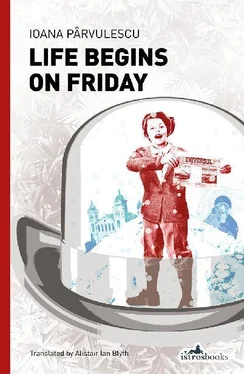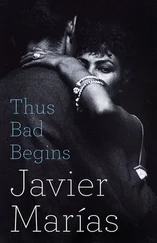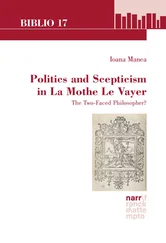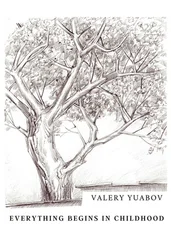It was only then that I felt the cold. I had left the window open. Like a whirlwind I went to my little brother’s room. He was sitting at the table, upon which a real war of lead soldiers was in progress. I think all the lead soldiers he had must have been there. The dear boy, he was fighting the War of Independence. On the table it was a true massacre; few soldiers were still standing. He has not looked well for some time; he is too pale. I said: ‘Jacques, I have a present for you. Something you have spent a long time waiting for.’
Curious, he said: ‘A r-real sword. An officer-r’s uniform. R-robinson Cr-rusoe. A r-real Alsatian?’
‘No, Jacques, not something tangible, but something spiritual.’ And so as not to torture him any longer, I said: ‘Come into the salon and you will see, or rather, you will hear.’
I sat down at the piano and began to play the minuet, still making the odd mistake, but Jacques grew even paler and from the very first musical phrase he let out a cry. ‘You have found it! You have found it! Who is it? What is it?’
He said it was the most wonderful present he had ever received in his life and almost wept for joy. I brought his flute. We decided to learn it properly, secretly, before Christmas, and to play it then, as a surprise for our family and friends. Maybe Mr Costache will come too, and our neighbour Giuseppe, the guitar teacher, will certainly join us.
Mama and Papa warned us yesterday that they would be going to the countryside very early in the morning, to our uncle’s in Giurgiu, and would not be back until afternoon. At Christmas, they always bring good things back from our uncle’s place. We have not reared our own pig for a few years. That was because Jacques chanced to see a newly born piglet taken away from the sow to be killed. The servant explained it to him clearly: ‘Count the teats and count the piglets. One is condemned to death!’ Jacques’ sorrow for the innocent piglet condemned to death was so great, his suffering was so material and physical, that Mama and Papa gave up rearing animals.
Both Jacques and I rejoice when we are left to our own devices. And so we played undisturbed until we felt hungry. I have not seen Jacques eat with such an appetite for a long time. I have observed that joy is the best medicine, and even Papa agrees. And so too does the irascible Mr Gerota, probably.
After he combed his mother’s hair, looking carefully to see whether she had picked up any more lice, and after he had tied the prematurely grey hair as nicely as he could, Nicu prepared breakfast. He was happy that she was at home, especially on winter days such as these, and he catered to her every whim, as if she were a child. Sometimes the woman smiled at him with the gentleness of a mother, sometimes she glared at him fiercely, like a wild animal, but it no longer frightened the boy. Of course, when he was younger he used to take fright and join in the yelling, which did not calm the situation one bit. Now, he treated her as he had seen his grandmother do, up until not long ago, talking to her softly and calming her. How could a daughter so ill, so tormented by demons as his mother have been brought into the world by a woman so good-natured and balanced as his grandmother? He hoped with all his heart that he would grow up to be like his grandmother, rather than his mother. Was it possible for a person’s qualities to bypass her children and appear in her grandchildren, like a legacy bequeathed by Nature? Such a legacy would do him much good in future. His grandmother had died at the age of sixty and to him that seemed young. As for his father, he knew only that he was a soldier or adjutant. He told everybody that his father had been an officer. He also said that he was dead, but of that he was not at all sure, and he was fearful lest he turn up and make his life complicated, just as he had made his poor mother’s life complicated — according to his grandmother.
Nicu inspected the larder with satisfaction: they had food to eat. When the other children asked him what he would rather be, a cricket or an ant, they made fun of him when he replied gravely: ‘An ant!’ Almost all the boys wanted to be crickets, but ants were wonderfully organized. The larder was quite tidily arranged: he had kept the boxes and jars in exactly the same order as his grandmother had. True, friends from various houses had given him and his mother food and even clothes as presents. He thanked them and accepted everything, even things for which he had no use. Whenever he went to visit Jacques, they sent him home, to the potters’ quarter, in the carriage with a box of good things, which, now that his grandmother was gone, he made last as best he could. His greatest satisfaction was to open the parcels and arrange the treasures they contained on the larder shelves: ground sugar, salt, lard, maize flour, jam, and cheese. The provisions that kept the longest, the flour and the rice, he placed on the highest shelf, climbing on top of a chair to do so. The things he used every day he kept conveniently to hand. He was always calculating how long the provisions would last and was determined not to throw anything away. In summer, if he received a litre of milk and it was not drunk, he would leave it in a cup to go sour, and then, placing the shank of a wooden spoon in the curdled milk and twisting it back and forth between his palms, he would thin it so that it would be fit to drink. It was harder when it came to bread. He had to be careful lest it turned stale or mouldy, and sometimes he would find they had no bread at all. In other houses, they baked bread in an oven in the yard; you could smell it from the street and the scent entered your nostrils and went straight to your belly. But he had to buy bread and he never had time. He had rusks and sometimes he could trick his mother with them, although she often grimaced and spat them out, making a mess.
That morning, having had her hair combed, she smiled sweetly and calmly, as he had not seen her do for a long time. Maybe it was also because the weather was sunny and he was quietly singing what he had been rehearsing at school: ‘The star rises high, / God’s sign in the sky, / The star shines bright, / Brings tidings of light…’
She too had started murmuring something, in a cracked voice, more and more delighted. He laid the table: bread for her and some rather old marmalade for him. And then he lit the fire. He reminded her to make sure it did not go out, showing her the firewood he had laid by, and put some balls of coloured wool in her hands, with which she played just like a cat. She was happy to ravel and unravel them all day long, and sometimes when he came home he would find wool unravelled all around the room, filling it with colour. By the door, Nicu put on his boots, carefully tied the laces and left. At the time he had promised his grandmother he would go to see her on Sundays whenever he was able. Today he was able. It did him good to chat to her about this and that and to ask her advice. And her voice as it was in life seemed to answer him, albeit now only in his mind, where it had somehow remained, stored alongside other voices, like the provisions in their larder. She always gave him good advice on what to do and how to overcome life’s trials. And for the hardest trials, once you had done all in your power, there were also the miracle-working icons, as follows: St Stelian, in Vergului Church, who looks after children’s health; Sts Cosmas and Damian the Unmercenary Physicians; and St Minas, who looks after the bodily health of all people; a saint whose name he forgot, who prevents girls from being scarred by the chickenpox; and St Eleutherius from the church in Cotroceni, who was to be visited when he wished to get engaged, said his grandmother. On the other hand, you could pray to the icon of St Nicholas any time at all; he looked after the poor and so deeply did he care for them that once he was late for a meeting with God, because he had stopped on the way to lend a helping hand to a peasant whose cart was stuck in the mud. When he arrived for his meeting with God, his boots were caked with mud. But God was not angry, said his grandmother. Nicu also remembered St Spiridon, whose purpose was ‘to prove thieves.’ He did not know what proving thieves meant, but if that was what the saint did, then proved they must be.
Читать дальше












